The ImageXpress® Confocal HT.ai High-Content Imaging System from Molecular Devices UK Ltd uses a seven-channel laser light source along with eight imaging channels to allow highly multiplexed assays while retaining high throughput by making use of shortened exposure times.
Water immersion objectives ehnace image resolution and reduce aberrations to allow scientists to see deeper into thick samples. With the help of a simple user interface and machine learning capabilities, the dynamic combination of MetaXpress® and IN Carta® software streamlines operations for better phenotypic categorization and 3D image analysis.
Enable greater assay flexibility
Eight imaging channels with laser excitation enable more assay flexibility, flexibility to use targeted imaging such as QuickID, and higher image brightness.
Automated Water Immersion objectives provide a matched refractive index and larger numerical aperture between the sample and the immersion media for fewer aberrations and improved resolution.
Increase throughput with higher quality images
For extremely precise and reproducible image analysis, a micro-lens enhanced spinning disc confocal provides a flat field of vision. Shorter exposure times produce up to a two-fold boost in scan speed. FRET experiments that made use of lasers for CFP and YFP help expand research.
Accelerate analysis speeds
The IN Carta Image Analysis Software performs tricky classification and segmentation. Phenoglyphs offers a robust trainable classification, and SINAP provides trainable segmentation for any image type.
With MetaXpress® PowerCore Software, users can accelerate analysis speeds by 40x with multi-threaded, parallel processing. Experimentation duration is reduced from hours to minutes, eliminating the bottleneck of 3D analysis.
Introduction to the Organoid Innovation Center and ImageXpress Confocal HT.ai system. Video Credit: Molecular Devices UK Ltd
Features
High-intensity laser light source
This feature helps capture images quicker with shorter exposure times. Users can employ seven lasers and eight imaging channels to multiplex any experiment.
Wide field of view
An extensive field of view allows whole-well confocal imaging and removes missed targets. The large and flat field of vision provided by next-generation dual microlens-enhanced spinning disc technology allows for extremely precise and reproducible analysis.
IN Carta image analysis software
By enhancing the precision and resilience of high-content picture analysis using machine learning, this software contributes to the delivery of data knowledge that other technologies frequently overlook. It also reduces the complexity of image analysis by making intuitive guided processes available via a modern user interface.
Automated water immersion objective technology
Increases image resolution and sensitivity by up to 4×, resulting in shorter exposure times.
Exclusive AgileOptix™ spinning disk technology
This technlogy offers increased sensitivity with uniquely fabricated optics, an sCMOS sensor, and high-powered laser illumination. Swappable disk geometries provide flexibility between resolution and speed.
Multiple imaging modes
The system offers phase contrast and brightfield label-free imaging, widefield and confocal fluorescent imaging with water immersion optics as a standard option.
Wide dynamic range
Measures low and high intensity signals in a single image with >3 log dynamic range intensity detection.
AgileOptix™ technology
The AgileOptix technology combines a strong solid-state light engine, custom optics, a scientific CMOS sensor, and the flexibility to switch between five disc geometries.
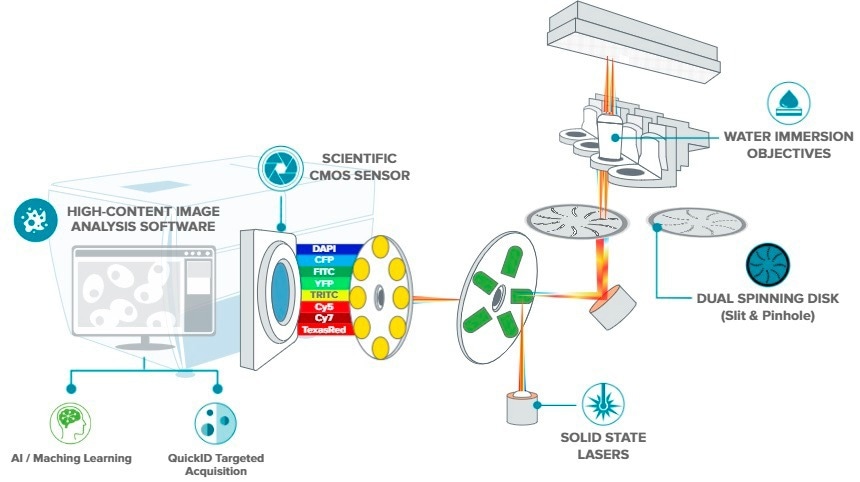
Image Credit: Molecular Devices UK Ltd
Images taken with the same exposure times show different average intensities
High-output laser excitation can shorten exposure durations by up to 75%. The 8-channel laser light source emits 1,000 mW/channel and is composed of near IR, making it ideal for users with high multiplexing requirements.
- Generate up to a two-fold boost in scan speed attributed to significantly reduced exposure times.
- Sharper images with higher signal-to-noise.
- Run FRET experiments with the help of lasers for CFP and YFP with high multiplexing needs.
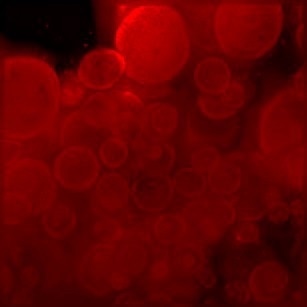
Cy5. Image Credit: Molecular Devices UK Ltd
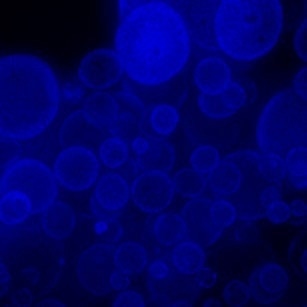
DAPI. Image Credit: Molecular Devices UK Ltd
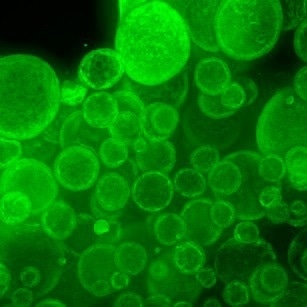
FITC. Image Credit: Molecular Devices UK Ltd
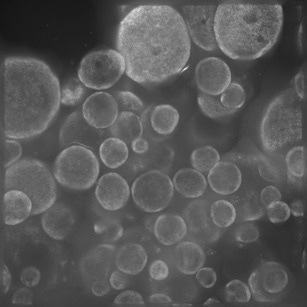
TRITC. Image Credit: Molecular Devices UK Ltd
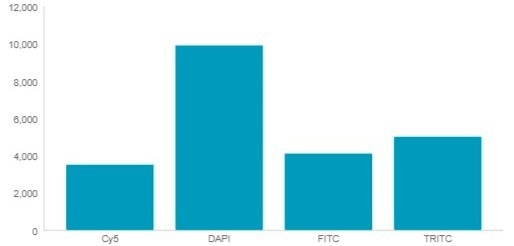
Average intensity for same exposure time: Laser. Image Credit: Molecular Devices UK Ltd
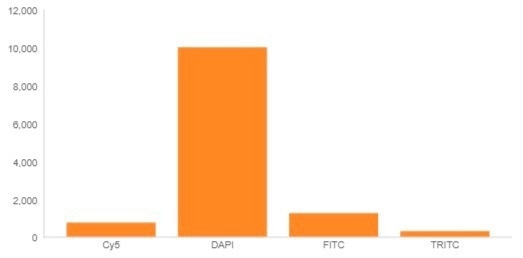
Average intensity for same exposure time: LED. Image Credit: Molecular Devices UK Ltd
IN Carta image analysis software
Powerful analytics combined with an intuitive user interface simplifies workflows for image analysis and phenotypic profiling. These advanced features give users the functionality that they need to analyze data in 2D, 3D, and 4D - at scale - and deliver real-time insights without the need for complex pre- or post-processing operations.
The software also helps to improve the specificity of image analysis workflows through the use of the SINAP deep-learning module. From this, users will see that segmentation is not as hard as it may seem. Machine learning allows users to perform complex phenotypic analysis all within a user-friendly Phenoglyphs module.
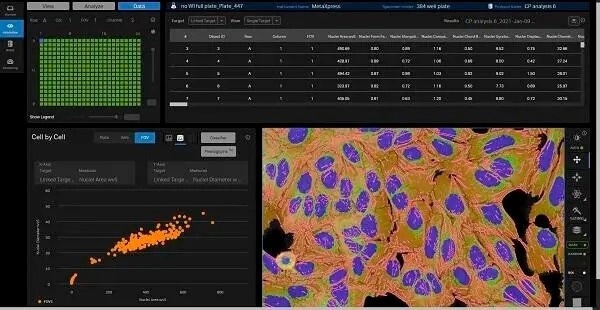
Image Credit: Molecular Devices UK Ltd
Cellular image gallery
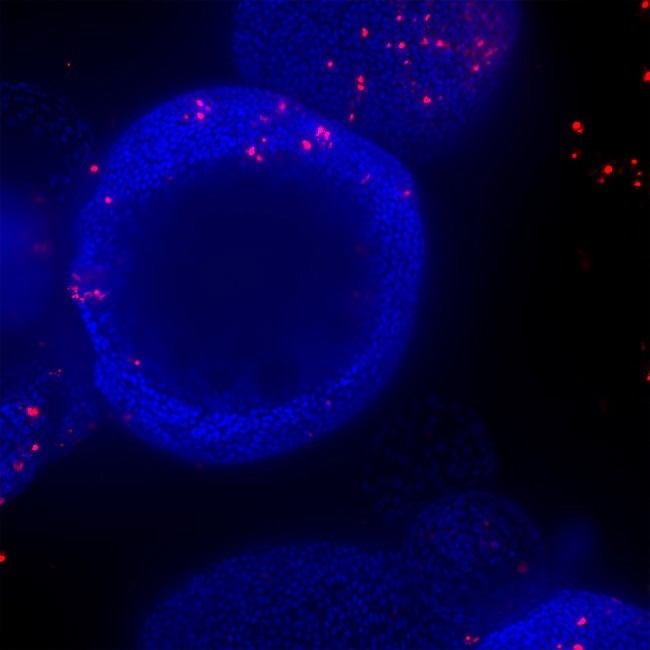
HT.ai Organoid with Black Hole. Image Credit: Molecular Devices UK Ltd.
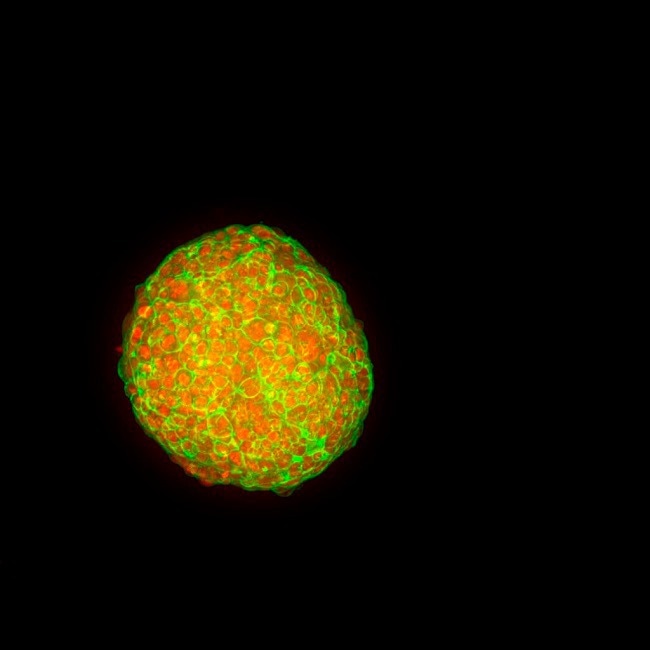
HT.ai Organoid overlay z-steps. Image Credit: Molecular Devices UK Ltd.
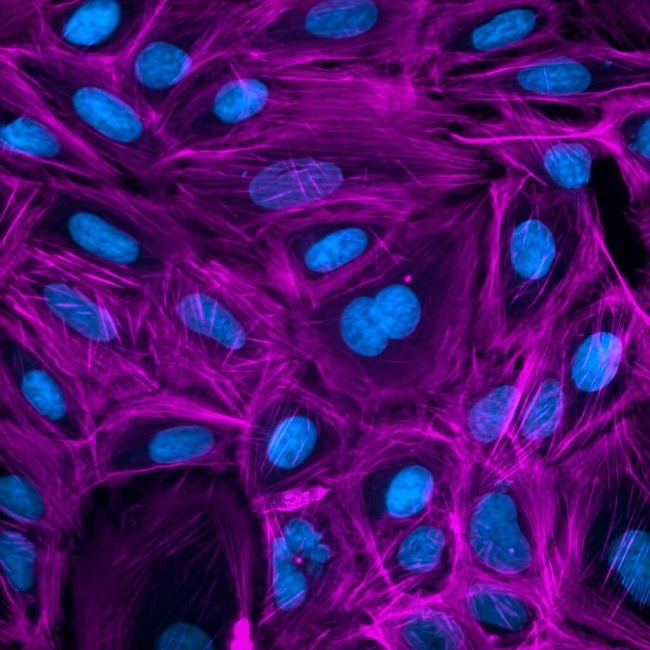
HT.ai Cell Painting. Image Credit: Molecular Devices UK Ltd.
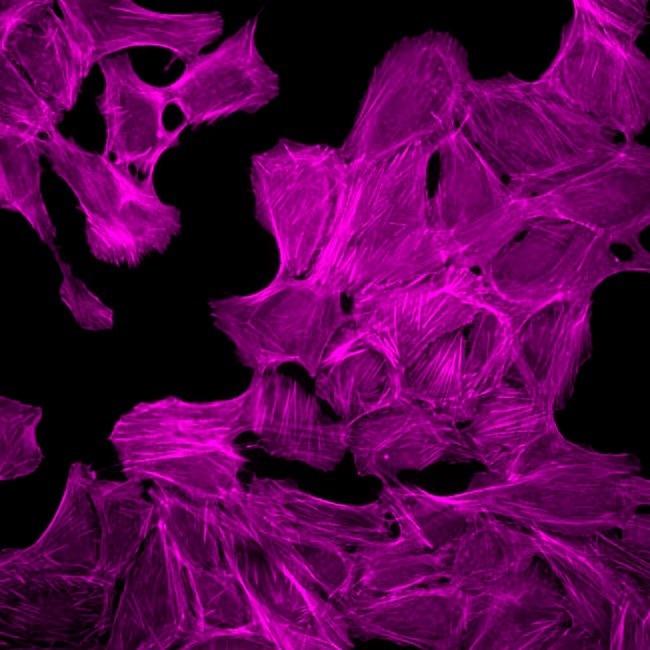
HT.ai Organoid-3. Image Credit: Molecular Devices UK Ltd.
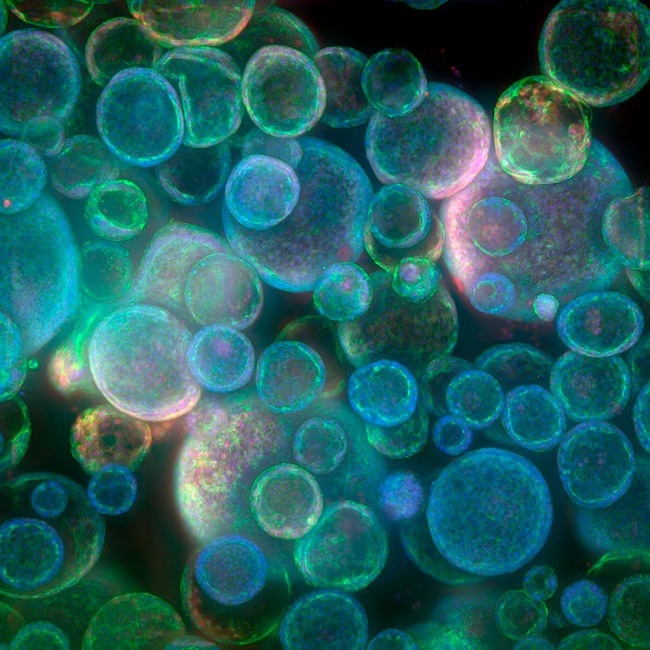
HT ai organoid encoded. Image Credit: Molecular Devices UK Ltd.
†Data and images were acquired during development using customer samples. Results may vary. Highlighted features’ price, time to deliver, and specifications will vary based on mutually agreed technical requirements. Solution requirements may cause adjustment to standard performance.